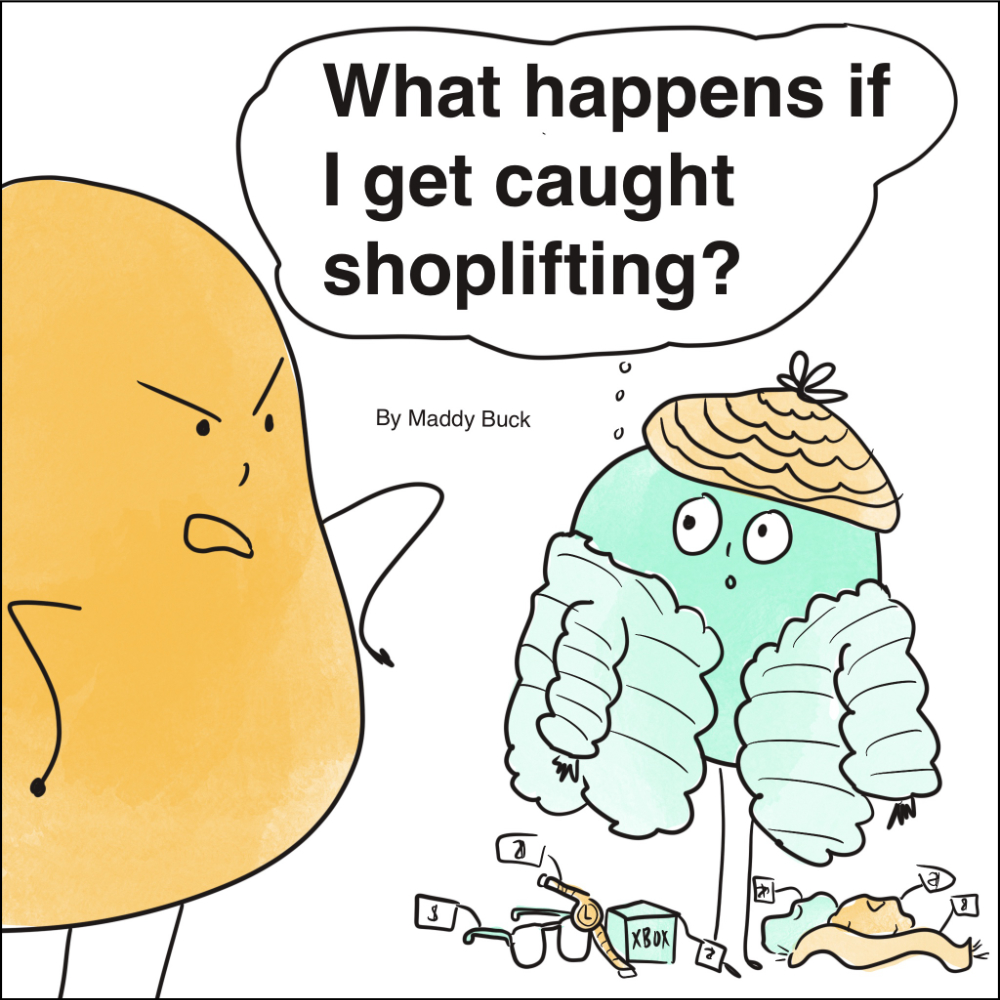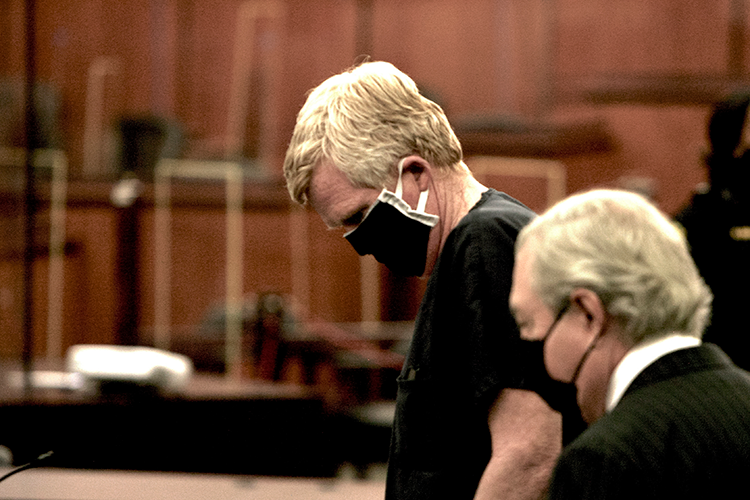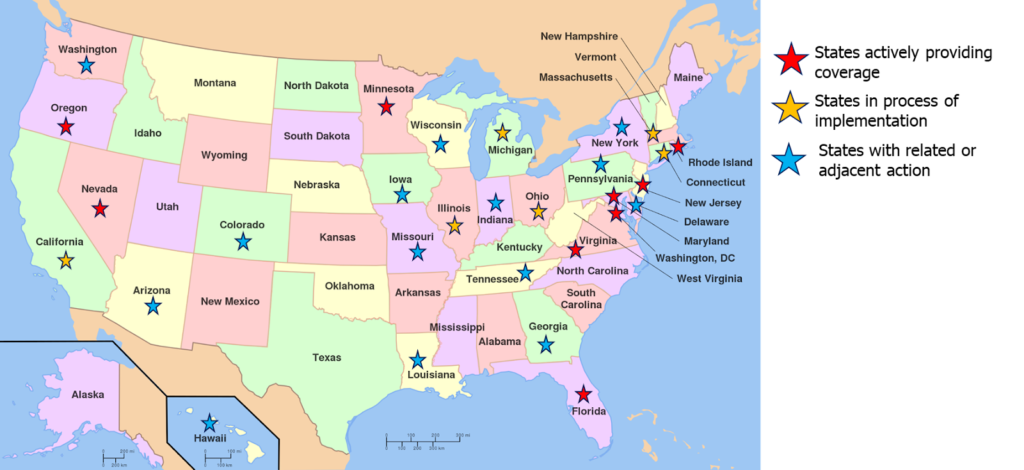What Happens if You’re Caught Shoplifting Under 18?
Statistics show the majority of shoplifting is done by teens. It may seem like shoplifting is a minor infraction and no big deal. After all, stores have too much stuff, so taking “merch” from a big business isn’t really hurting anyone. No one will even notice, right?
The crime of shoplifting, whether from a giant department store or a small local shop, can sometimes lead to serious criminal charges. Even if you’re a minor, criminal laws for shoplifting apply.
What Is Shoplifting?
Shoplifting laws vary by state but typically fall under larceny or theft crimes in the penal code section of state laws. Although a shoplifting charge is a type of theft charge, it can include specific requirements and punishments that set it apart from petty theft or grand theft.
To read this story in comic form, click the image below!
Shoplifting generally includes intentionally taking items or property displayed for sale without paying for them. You are still stealing even if you don’t “rob” someone, but you just try to sneakily remove something from a store.
“Nonpayment” can include more than just hiding the items or property and leaving the store without paying. Other examples that may qualify as not paying include:
- Altering the price (switching price tags)
- Combining items to avoid paying for each individually
- Charging the purchase to someone else without their permission
States have different ways of differentiating shoplifting from other types of larceny and theft charges, so you should check your state’s laws to learn what elements or requirements the state must prove to convict you of shoplifting.
What Happens if I Get Caught Shoplifting?
If you’re caught and the store wants to press charges, some states allow the store to detain you until police officers or law enforcement arrive if “probable cause” exists to believe that you committed a crime.
The severity of the offense determines whether you are charged with a misdemeanor or felony and depends on the specifics of the crime. A shoplifting case against an adult is tried in criminal court, but the legal process for a minor typically takes place in juvenile court.
Shoplifting by a minor is considered an “act of delinquency” where proceedings take place in the juvenile justice system. Instead of a trial, minors attend an adjudication hearing to determine whether they committed the delinquent act. You will still be entitled to representation by a criminal defense lawyer.
What Are The Shoplifting Penalties for Teens?
Unlike the criminal justice system, where the focus is on punishing adults for a shoplifting conviction, the goal of juvenile court is to educate and reform a minor. Penalties can depend on whether it’s the first time you have been charged or if you are a repeat offender.
Juvenile courts often allow minors to participate in a diversion program for a first offense. This can include taking an educational course about shoplifting, participating in community service, regularly attending school, and maintaining a certain grade point average. Other types of punishment may include:
- An order to pay restitution for stolen property
- Juvenile probation
- Counseling
- Driver’s license suspension
For severe or felony shoplifting where an adult would likely be sentenced to jail time, the court could order placement in a juvenile detention facility or program.
If you commit a criminal offense as a minor, you may still be able to have your criminal record expunged once you serve your sentence. If you need legal advice, find a criminal defense attorney in your area.
Related Resources:
You Don’t Have To Solve This on Your Own – Get a Lawyer’s Help
Meeting with a lawyer can help you understand your options and how to best protect your rights. Visit our attorney directory to find a lawyer near you who can help.







